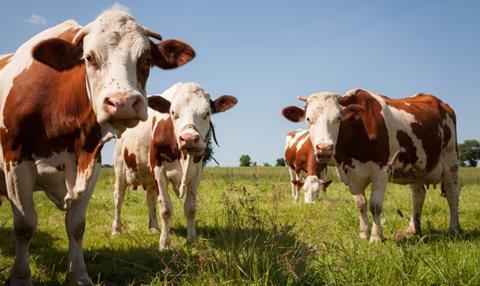The Sustainable Food Trust is among those welcoming new animal welfare measures announced by the UK government, but also calls for more 'local' abattoirs.

Higher welfare standards proposed for farm animals being transported include:
- Introducing shorter maximum journey times for live animals – between four and 24 hours depending on the species of animal
- Giving animals more headroom during transport
- Stricter rules on the transport of animals during extreme hot or cold temperatures.
These new rules, which the government said are being developed in partnership with the farming industry, will apply to animals being transported within England and Wales. They come alongside the introduction of a ban on live animal exports for slaughter and fattening, which is currently going through Parliament as part of the Animal Welfare (Kept Animals) Bill. The new conditions would apply to all journeys over 65km.
The British Veterinary Association (BVA) took part in the consultation process and welcomed the commitment to improving conditions, having called for an 'holistic approach' that considers welfare before, during and after a journey.
Jane Russell, BVA president, said: “It’s vital that the government engages meaningfully with the veterinary profession and industry colleagues as they develop these proposals, to ensure that measures are evidence-based and workable and deliver genuine and decisive welfare benefits for millions of farm animals. We look forward to working closely with our species divisions and Defra as the specifics take shape.”
"We urgently need more local slaughterhouses"
Patrick Holden, CEO and founder of the Sustainable Food Trust, called for the government to go even further.
He said: "It's encouraging to see action from the government to improve the welfare of animals by reducing maximum transport times to four hours for poultry. But for this to work we urgently need more local slaughterhouses. As more and more people look to their diets as a way of living more sustainably, we can't deny that the rise in vegetarianism and veganism is also in large part fuelled by greater awareness of the impact of the industrialised meat industry on animal welfare."
Holden continued: "While we welcome the move, if we really want to respond to growing consumer demand, the government needs to go even further for all livestock and set a target of a maximum two-hour journey time to slaughter. Not only would this vastly improve animal welfare, it would create the conditions for a renaissance in local and ethical meat production and consumption.
"Crucially, to allow this to happen, we need to boost the numbers of small, local abattoirs across the UK that can supply the local farmers in their area."
Mixed reaction from NFU
NFU deputy president Stuart Roberts said: “Animal welfare is always a top priority for any livestock or poultry farmer and we maintain that new rules or policy should be based on sound evidence and the latest science.
“We’re pleased to see in some areas Defra has taken account of the evidence we presented and made changes to its proposals.
“However, we’re disappointed that other elements are not more meaningfully welfare-focused, utilising driver training and experience. For example, we are frustrated that our proposal for a live export assurance scheme has been overlooked, which would have ensured UK rules on transport and processing would have followed animals to other countries.
“We believe basing a transport ban purely on its purpose, in this case for slaughter, is not logical given that farmers and transporters have an inherent interest in ensuring all journeys meaningfully protect welfare at all stages and types of movement.
“We are pleased to see that Defra is committed to working collaboratively with the industry in this area and we stand ready to support further policy development to improve welfare at transport.”
This story was originally published on a previous version of the Meat Management website and so there may be some missing images and formatting issues.















